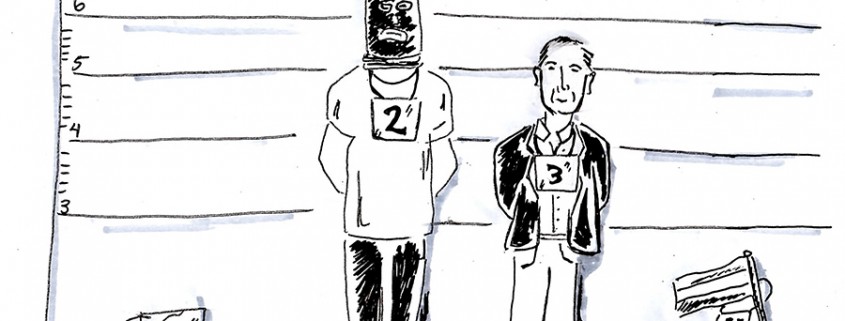Nemtsov’s death diminishes hope
Last week, Boris Nemtsov, former deputy prime minister and leading critic of Russian President Vladimir Putin, was assassinated blocks away from the Moscow Kremlin. With such a high-profile murder occurring right under the nose of the Kremlin, Putin is sending a clear and incontrovertible message: Dissent has no home in Russia.
Nemtsov was a leading figure in Russia during its post-Soviet years. Under President Boris Yeltsin, Nemtsov led reforms that began erasing the parameters of communism, which stagnated the Russian economy, and started to implement policies for a nascent capitalist system. His efforts led him to be vice premier and his liberalist vision for a better Russia was lauded in the country for its reform and commitment to Russians. During a transformative period for Russia, he represented the change and spirit needed to revamp the antiquated communist-era mentality and attitudes that dominated Russia in the early 1990s. Nemtsov was the impetus for ushering in a new era and what Putin despised.
At the turn of the century, Putin rose to power and stood in stark contrast to the efforts put forth by Nemtsov. While Nemtsov was a reflection of the desire for a better Russia, Putin was the poster boy for antiquated, back-door, cigar-smoking politics that defined the world for much of the 20th century. Putin was president from 2000 to 2008 and undertook a third term in 2012. By holding onto power for so long, Putin has silenced any opposition and parlayed the image that he intends to stay in power. While Russia’s economy undeniably struggled as it transitioned to a more capitalistic system, Putin’s power-hungry stance perpetuated Russia’s struggles and held it back from progress. After decades of carnage, fear and a dark shadow over governmental affairs, Russia was in need of a transition from its deeply damaged bureaucracy to a more transparent, flexible and dependable government. Putin was largely more of the same in Russian politics and has continued to shun the metamorphosis of Russia.
In recent months, Nemtsov vocally opposed Russian military operations in Ukraine. The unsolicited, cold-annexation of Crimea and subsequent conflict in eastern Ukraine underscored the aggression of Putin and his ambitions to increase the territory and presence of Russia. In the 21st century age of globalization and apprehension toward threats to national autonomy, Putin has demonstrated a policy that is the antithesis of the ideas and beliefs promoted by the international community. He has repeatedly denied sending any boots on the ground and has rejected accusations of participating in military action. Nemtsov fought to expose the Kremlin’s actions in Ukraine, its shoddy business involving the Sochi Olympics and the profound levels of corruption throughout the Russian government. His death sends a chilling memorandum to domestic Russians that the promotion of ideas and acts antagonistic to those of Putin will not be tolerated. In Putin’s Russia, Nemtsov was one of the last glimmers of hope for a renewed vigor and force of dissent. If Putin’s actions in Ukraine were not evidence enough of his unrelenting power to restore his country to its prior glory across the entire region, then the death of the most famous dissenter in Russia paints a foreboding portrait of the future of the country’s future.
Rather than resign to the maudlin outlook cast by Nemtsov’s death, Russian opposition should not be discouraged. Dissent is a powerful force against despotism and wielding such weapon threatens the belligerence of Putin and his authoritarian rule.
In his country, Putin might be able to silence opposition and quiet dissent, but on the world stage, the spirit of Nemtsov’s struggle persists.
Athanasius Georgy is a sophomore majoring in economics. His column, “On the World Stage,” runs Thursdays.


It makes me really sad to see the young people nowadays become so gullible and readily accepting of the mainstream media’s narrative of events going on in the world. What happened to taking a critical look at what is being reported? Based on Nemstov’s death, how can you say that Putin is sending a clear and incontrovertible message that dissent has no home in Russia? Is there a proof that Putin ordered the killing of Nemstov? Ok, lets say that Putin ordered the killing. But does it make any sense? Why would he kill a dissident loved by the west to invite further rebuke and sanctions from the west? Why would he do something that could be easily exploited by the west to bring about a regime change (as the west has done in so many other countries)? Only an utter fool would do something like that and Putin is no fool. If he was a fool, he could never have become the president of Russia. On the other hand, the west has everything to gain by the death of Nemstov. As a living dissident he hadn’t been that useful to the west as is apparent in the long time that the west has been attempting, without any success, to elevate the dissidents to bring about a regime change in Russia. However, as a dead dissident he is of immense use to the west for the reasons I have mentioned above.
I admire that young people are interested in world events, politics and the like. But it is very sad to see them simply regurgitating the prevalent narrative instead of analyzing, asking questions and coming up with original thoughts however unpopular they may be.